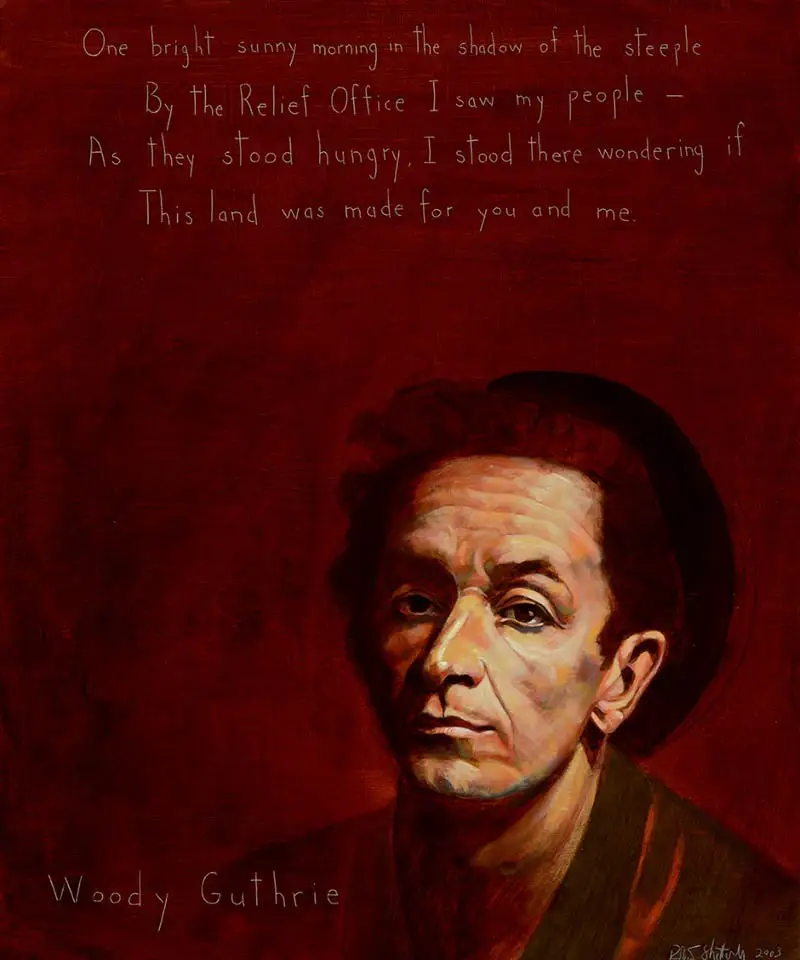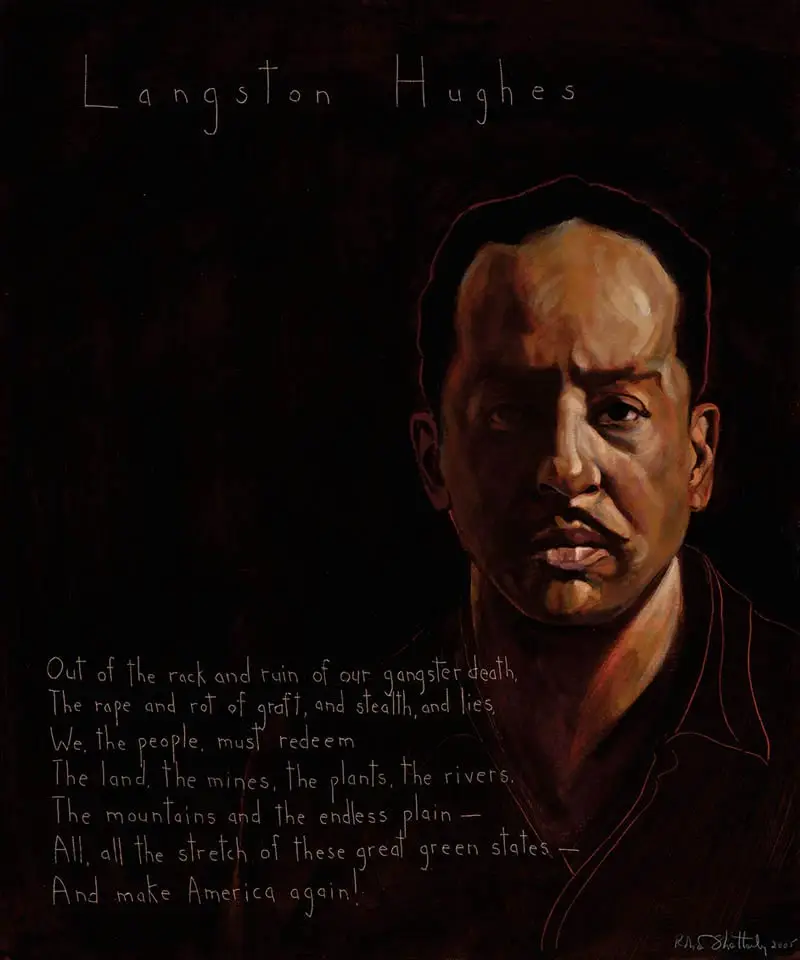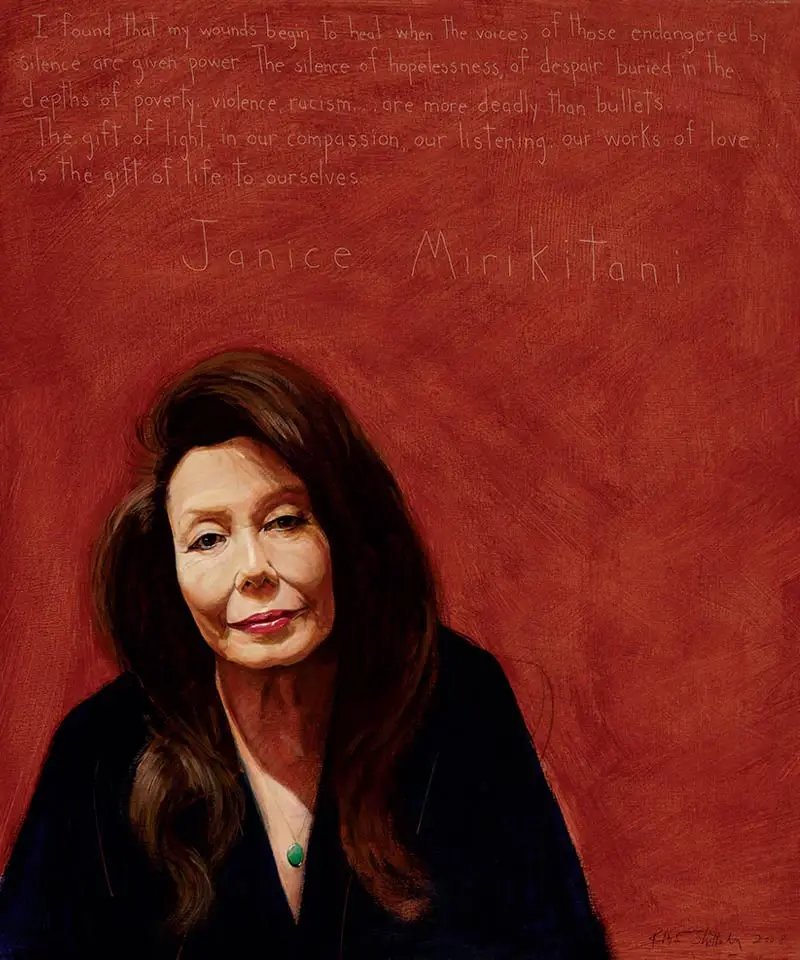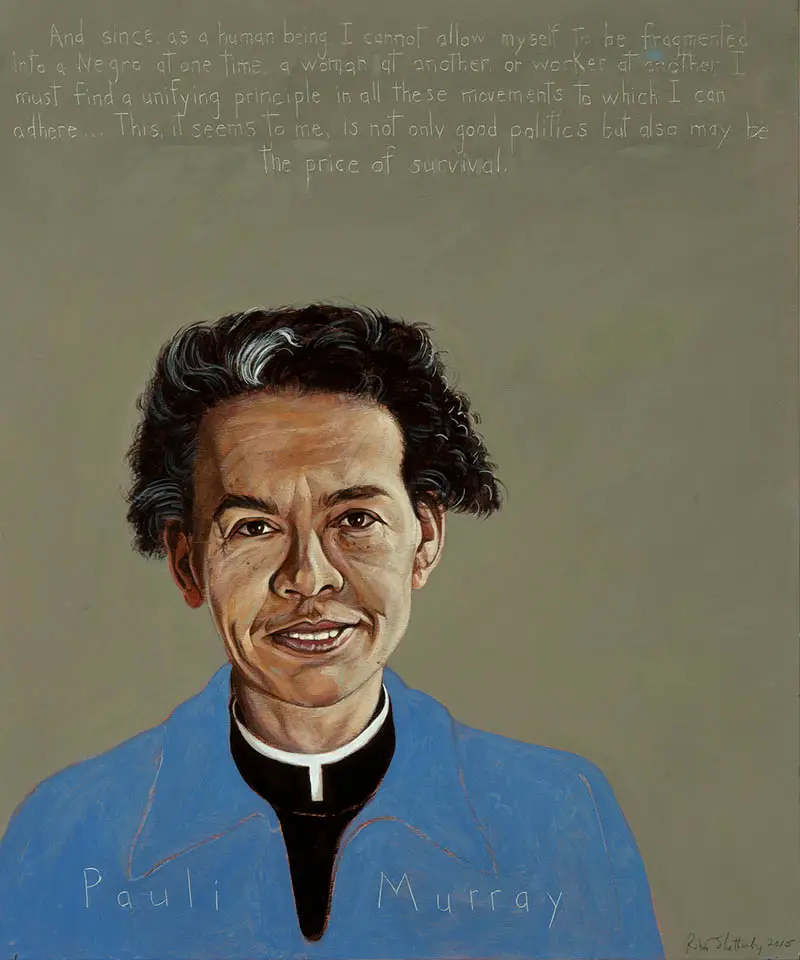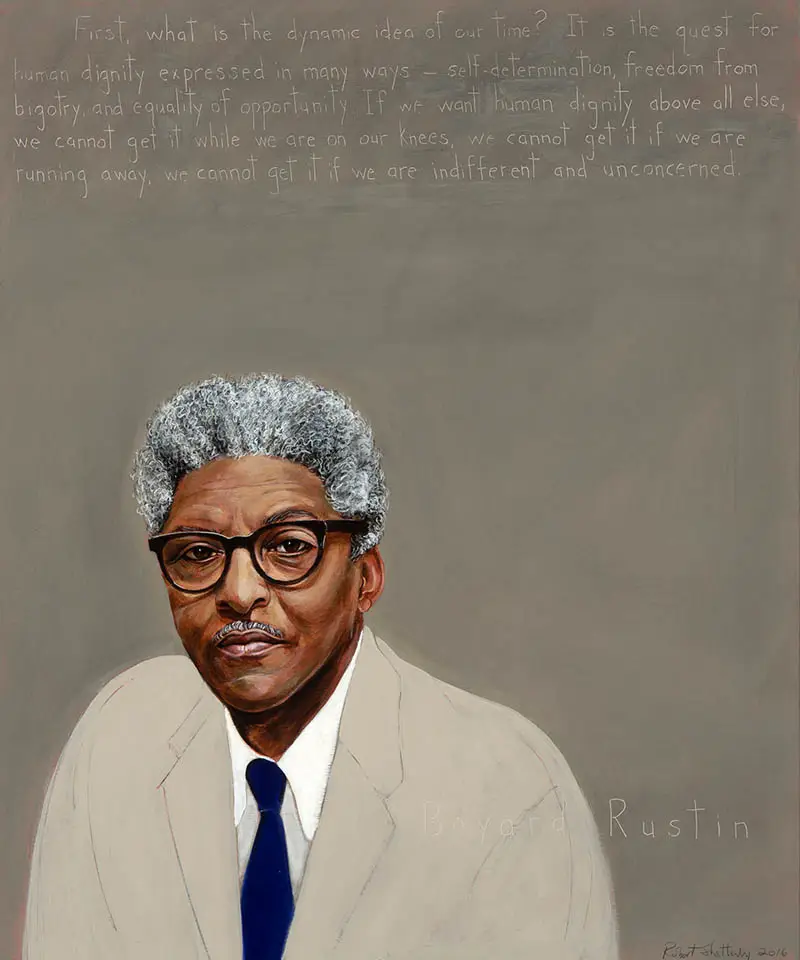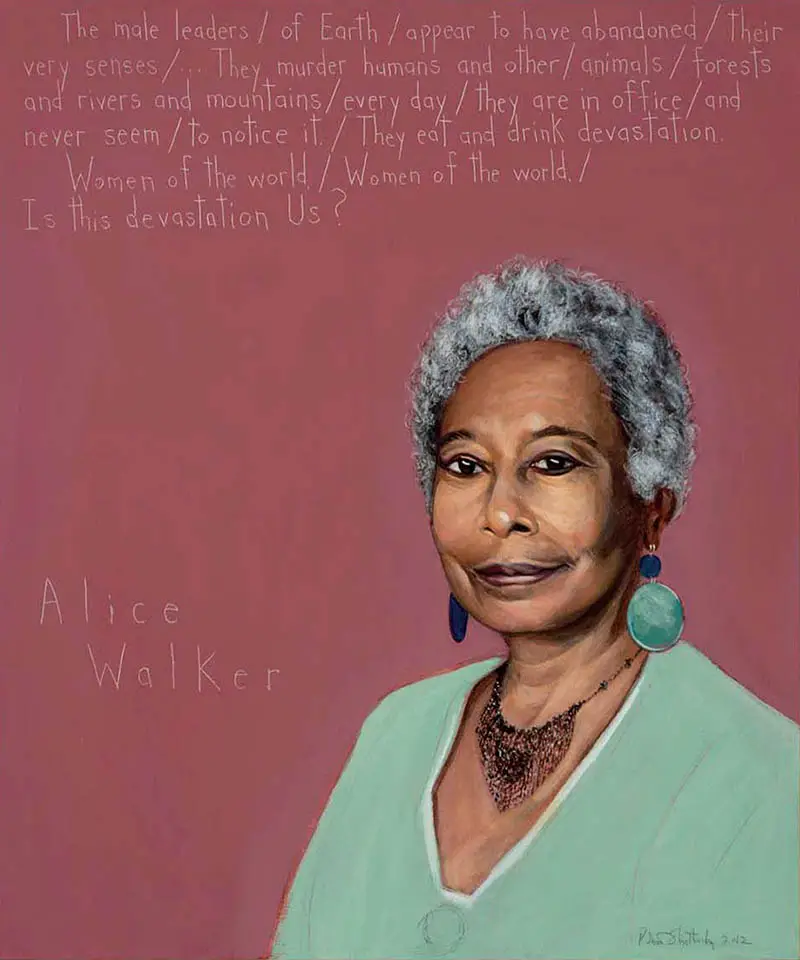
Alice Walker
“The male leaders / of Earth / appear to have abandoned / their very senses . . . They murder humans and other / animals / forests and rivers and mountains / every day / they are in office / and never seem to notice it. / They eat and drink devastation.
Women of the world, / Women of the world, / Is this devastation Us?”
Biography
Alice Walker is a world-famous writer and activist, best known for her work in the civil rights and feminist movements. She was born on February 9, 1944, in Eatonton, Georgia, the youngest in a family of eight children. Her father worked as a sharecropper, her mother as a maid to support their family in the Jim Crow South, where black children were expected to work the fields with their parents. To keep her daughter safe and out of the fields, Alice’s mother enrolled her in first grade at the age of four. Throughout her childhood, Alice excelled academically while attending segregated schools.
At age eight, Walker was shot accidentally in her right eye with a BB gun while playing with her brothers. Scar tissue grew over the blind eye. Before the accident, Alice had been a pretty, lively, talkative child. After the scar tissue appeared, she grew self-conscious about her appearance and withdrew to a solitary world of books and writing. During this time, she felt ashamed, alone, and abandoned by her family. Six years later, the scar tissue was removed and she recovered her confidence. She went on to become a popular high school valedictorian. However, the years spent in isolation made a permanent impact on Walker’s worldview. She learned to feel “empathy and a sense of kinship with other people she perceived to be afflicted” She also developed the powers of observation that serve her as a writer. In this sense, the most painful experience of Walker’s youth laid the groundwork for her activism and writing.
Walker earned a scholarship to Spelman College in Atlanta. In 2013, she recalled her first trip to Atlanta. She stepped onto a bus and sat down in a front seat. Shortly after, she was confronted. “I was ordered immediately to the back of the bus because a white woman complained to the white bus driver. . . . I had been writing poetry since I was nine, but I realized I would never have the luxury of only writing poetry; that I would have to be politically active in order to achieve enough freedom to write at all.”
Even then, Alice Walker felt called to a life of activism to make art and self-expression possible for herself and others. Eventually, she transferred to Sarah Lawrence College in Bronxville, New York, and graduated in 1965, at the height of the civil rights movement. In 1967, her first short story was published in the anthology The Best Short Stories by Negro Writers, edited by Langston Hughes.
In March 1967, Walker married Melvyn Leventhal, a Jewish civil rights lawyer. They moved to Mississippi, where their interracial marriage was illegal due to the state´s anti-miscegenation laws. The young couple were threatened and harassed. They had a daughter, Rebecca, in 1969; their marriage lasted seven more years. During this period, Alice Walker built a name for herself as a writer – publishing poetry, fiction, and magazine journalism.
The peak of Walker’s writing success came in 1982, when her novel The Color Purple was published. It won both the Pulitzer Prize and the National Book Award and became a bestseller. Three years later, Stephen Spielberg directed Danny Glover, Whoopi Goldberg and Oprah Winfrey in an award-winning film based on the book. In total, Walker has published more than forty books, including fiction, poetry, criticism, and memoir.
In 1983, Walker published an essay collection, In Search of Our Mother‘s Gardens. In the title essay, the garden becomes a metaphor for black women’s creativity and self-expression. For many generations, women’s creativity was suppressed under the weight of the hard labor they were forced to do. In spite of difficult living conditions, Walker’s mother found a place to create while providing for her family: her garden. Alice Walker’s career has been driven by her desire to live in a world where all people have the freedom to be creative. Inspired by her mother’s creative outlet, Walker titled her website “Alice Walker’s Garden.”
After achieving literary fame, it would have been easy for Alice Walker to live a private life, safely away from the challenges of an activist lifestyle. Instead, she turned her attention to injustice wherever she saw it in the world. She has protested the South African apartheid, the Iraq War, the Israeli occupation of Palestine, and female genital mutilation. A fearless and independent thinker, Walker has taken criticism for her activism from many sides. But she doesn´t back down from her convictions. In 2012, Walker declined to have The Color Purple published in Israel in protest of the Israel’s treatment of Palestinians. In her letter to the publisher, she compared the situation to South African apartheid and Jim Crow in the American South, claiming that conditions in Israel and Palestine were even worse. In an echo of the non-violence of Martin Luther King, Jr. and the American Civil Rights Movement, Walker joined the non-violent BDS (Boycott, Divestment, Sanctions) protest in hopes of inspiring change in Israel. In an interview, Walker had more to say about the conflict:
“I am tormented knowing what is being done to the children of Gaza, for instance, because my country has paid for weapons Israel uses to murder and terrify them. When I was in Gaza I talked with psychiatrists and social workers and of course with some of the children. My view is that all children are the responsibility of all adults. The Jewish child is precious, so is the Arab child. So is the African child and the Indian child and so on. To turn away from them is impossible for me.”
When asked how to keep up a strong spirit of activism after years of struggle, Walker said this:
“I have a deep sense of oneness with the planet, the cosmos. I realize I am home, forever, in this Universe. A Universe that seems to me perfect in every way. It is tragic that our focus on harming others is fatally distracting humans from this invigorating reality. Whatever happens to me I will always be part of this amazing Wonder that is life in this vast Creation. I am thankful. When I am not overwhelmed by sadness I am filled with joy.”
In literature and in life, Alice Walker´s legacy is her conviction, speaking out for human dignity, civil rights, and freedom.
Related Portraits
Programs
Americans Who Tell the Truth (AWTT) offers a variety of ways to engage with its portraits and portrait subjects. Host an exhibit, use our free lesson plans and educational programs, or engage with a member of the AWTT team or portrait subjects.

Education
AWTT has educational materials and lesson plans that ask students to grapple with truth, justice, and freedom.
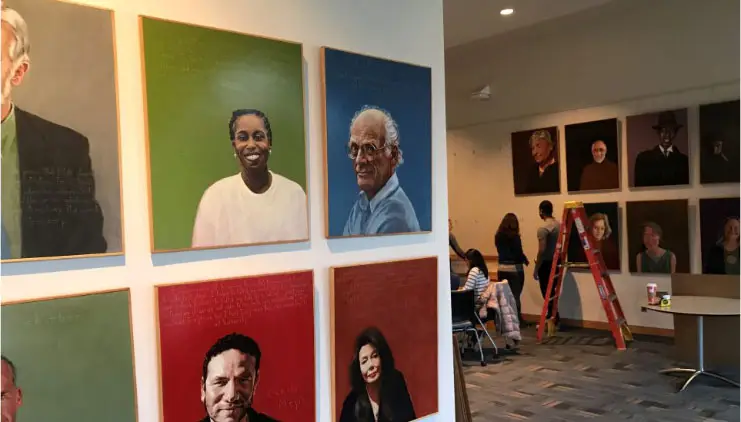
Exhibits & Community Engagement
AWTT encourages community engagement programs and exhibits accompanied by public events that stimulate dialogue around citizenship, education, and activism.
